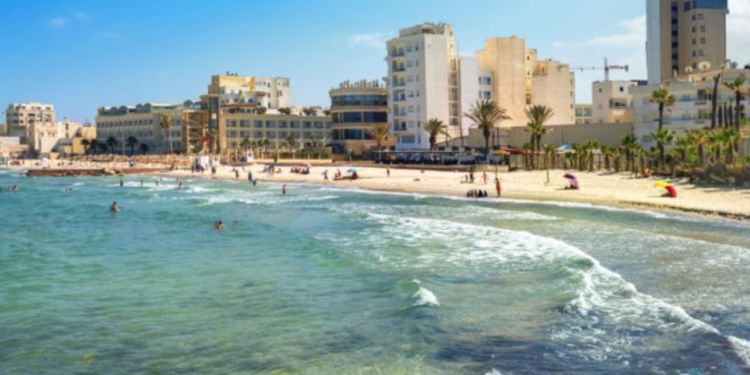Working in Sousse

Sousse is the third largest city in Tunisia and a popular expat destination in the country. Known as the “Pearl of the Sahel" and offers a favorable environment to settle in, with its Mediterranean climate, easy sea access and lots of beautiful scenery.
With that, finding a job in Sousse may not be easy unless you work in the tourist sector or oil-related industries. But let's take a closer look.
Why work in Sousse?
Sousse is probably not on the list of the most coveted working destinations. The options for building a career here are quite limited, and job vacancies for expats are typically available in only a few industries.
With that, work and life in Sousse come with their own advantages.
First, you will be able to fully enjoy a warm Mediterranean climate, easy access to beautiful beaches and a relaxed lifestyle with all the urban conveniences.
Second, while salaries in Tunisia are lower compared to most European countries, the cost of living is also substantially less high. This means that if you are able to relocate to Tunisia with an expat salary, you may enjoy a very comfortable lifestyle without overspending.
Overview of the labor market in Sousse
Sousse is one of the major cities in Tunisia. It's a dynamic regional metropolis in a state of constant expansion. It is the country's third economic and cultural center, with a population of 270,000 people.
Thanks to its strategic position and the numerous opportunities it provides, Sousse has been attracting expatriates from across the world over the years. Finding a job here is not necessarily difficult — provided you look in the right industries.
The economy in Sousse
Sousse's economy is on par with other major cities in Tunisia.
Industry remains the main economic pillar as specified by the Tunisian Chamber of Commerce and Industry. In fact, the city hosts not less than 554 manufacturing industries, among which 325 are fully turned to exports. These are mainly involved in the textile, clothing, leather and shoes sectors.
The local economy also greatly relies on agriculture through two types of production: olives and fruits and vegetables. Fisheries and organic agriculture are also taken into account.
As regards tourism, Sousse has much to teach others. Indeed, since the 60s, various events, festivals, archeological sites, museums, souks, ports, etc., have been attracting foreigners by providing a folk and relaxed environment. The city hosts many places of interest as well as annual events which are world famous.
Sousse also has a wide transportation network, located less than 20 km from the Skanes Monastir Habib Bourguiba International Airport and 40 km away from the Enfidha-Hammamet International Airport. The maritime route is facilitated by the port of Sousse, while the rail system is served by three lines, including a light railway line.
On the other hand, Sousse is Tunisia's third busiest education center. Every year, some 80,000 students graduate from Tunisian universities, with many of them having studied in Sousse.
Being one of the country's most dynamic sectors, the craft industry also makes a significant contribution to the local economy thanks to embroidery, weaving, and pottery, which are exported to the rest of the world.
Promising fields for job hunting in Sousse
As you might have understood by now, Sousse has a dynamic economy, although its labor market comprises more job seekers than offers. However, if you narrow down your job search to the city's most promising niches, you will have a higher chance of finding work. These are industry, tourism, transports and higher education.
Job hunting in Sousse
We are all used to starting our job search online. However, in Sousse, this may not be the best way to go.
Job offers in Sousse are rarely advertised on the Internet and in newspapers. In fact, you will probably learn more about work opportunities in the city via word of mouth, which is a common practice in Tunisia.
So, if you are looking for a job in Sousse, feel free to spread the word among your friends or contacts on the spot. You could as well send them your resume so that they can put you in touch with employers.
If interested in your profile, employers may request a first phone or Skype interview. In fact, international companies often proceed in this way to hire high-profile candidates.
You could also consider making a first trip to Tunisia with a list of potential employers in hand. Once you are on the spot, feel free to drop by and seek an appointment with the director or manager.
While these job hunting strategies work for most companies in Sousse, if you are looking to work for a large international company, you can also turn to some more conventional job searching methods. If you know what company you would like to work for, consider reaching out to them directly with your resume and cover letter.
Alternatively, if you are a high-level professional in your field, you may find it best to search for employment via a professional recruitment agency or headhunter in your industry.
How to apply for a job in Sousse?
If you are applying for an expatriate position in Sousse, as elsewhere in Tunisia, you may often submit your resume and cover letter in English. However, in most other cases, you will need to have your application in French or Arabic.
You can use standard resume formats when applying for work in Tunisia: you can focus on your work experience and list it in reverse chronological order, or you can highlight your professional skills if you don't yet have much working experience.
When composing your application, try to make it as relevant as possible to the job you are applying for.
It is also important to be aware of the local sensitivities and restrictions. For instance, it's advised to avoid mentioning affiliation with any religious organizations and groups.
What are the working conditions in Tunisia?
The Labor Code, as amended by Law 96-62 of 15 July 1996, fixed laws regarding working conditions in Tunisia. The Labor Code regulates the following:
- the legal working age
- the legal working week
- entitlement to leaves
- and employment contracts for both Tunisian and foreign workers.
What is the minimum working age in Tunisia?
In Tunisia, children are allowed to work from the age of 16. However, the ability of children to work must be determined by medical supervision until the age of 18. In fact, a child can only remain in continuous employment provided he undergoes a medical examination every semester.
Working week in Tunisia
The legal working week consists of a maximum of 48 hours. Its duration can also be reduced without going lower than 40 hours a week.
An employee is entitled to a one-hour rest during his working day. This break can be taken once or several times.
As regards part-time jobs, the legal working week should not exceed 70% of the normal working week. Note that the accumulation of full-time and part-time work is prohibited.
There are also several public holidays observed in Tunisia:
- New Year's Day on January 1st
- Commemoration Day of Revolution on January 14th
- Independence Day on March 20th
- Martyrs' Day on April 9th
- Labour Day on May 1st
- Aïd El-Fitr (dates vary)
- Aïd El Kebir (dates vary)
- Republic Day (July 25th)
- Ras el am el Hejri (Islamic New Year)
- Women's Day (August 13th)
- Prophet Mohammed's Birthday (October 18th)
- Evacuation Day (October 15th)
- Revolution and Youth Day (December 17th)
Weekly rest days in Tunisia
Agricultural and non-agricultural workers and their dependencies are entitled to a weekly rest day of twenty-four consecutive hours. This rest day may be granted either on Friday, Saturday, or Sunday. In the agricultural sector, the rest day may also be granted on the weekly market day.
Annual leaves in Tunisia
All employees are entitled to a paid day off per month annually, provided they have been working with the same employer for at least one month.
However, the duration of the requested leave can not exceed a period of fifteen days with twelve working days. After five years of service with the same employer, the employee is entitled to an additional leave per period.
Leave dates are fixed on the 1st January of each year. In general, these are granted every year from June 1st to October 31.
What is the minimum salary in Tunisia?
The minimum wage in Tunisia is guaranteed by a decree adopted following consultation with employer and employee trade unions in all sectors. Negotiations can thus be made between the parties concerned in compliance with this decree. Hence, the minimum wage in non-agricultural sectors is fixed for men and women aged 18 or less.
As of 2022, the minimum wage in Tunisia is set at 340 Tunisian dinars ($220) per month for a 48-hour work week. For a 40-hour work week, it is set at 290 dinars ($199) per month in the industrial sectors. Agricultural workers make from 9 dinars ($6.50) to 14 dinars ($10) per day.
How much you will make in Tunisia as a foreign professional depends on several factors: your line of work, the company you work for, whether you have been relocated to Tunisia as part of a work project, and more.
In most cases, being relocated to Tunisia by a company in your home country is the best option. This way, you will be offered a relocation package that will include a number of benefits, including accommodation, health insurance, covered transportation costs, tickets to fly back home for holidays, and more. Depending on the company you work for, your salary will also probably be substantially higher than what local companies can offer.
If you were hired by a company in Tunisia directly, your salary will depend on the work you do and your level of experience. Note, however, that even within the same industry, the salaries in Tunisia vary greatly.
For instance, a top-level game developer may earn around 12,000 dinars ($3,800). A python software developer's salary may range from 3,000 ($970) to 5,000 dinars ($1,600) or higher. A senior software developer in an international firm makes around 9,000 dinars ($3,000) net.
Outside of the IT field, however, salaries are notably lower. The average salary for a secondary education teacher is around 1,000 dinars ($320) to 1,500 dinars ($490).
Overall, finding work in Sousse may be challenging — but it's not impossible. With enough research and a bit of determination, you will be able to experience the Tunisian workplace when you are ready.
Useful links:









